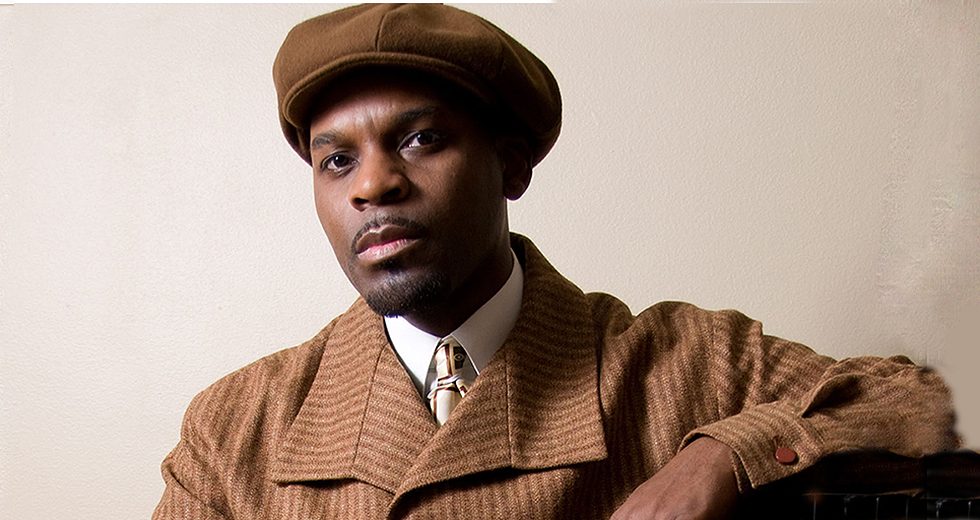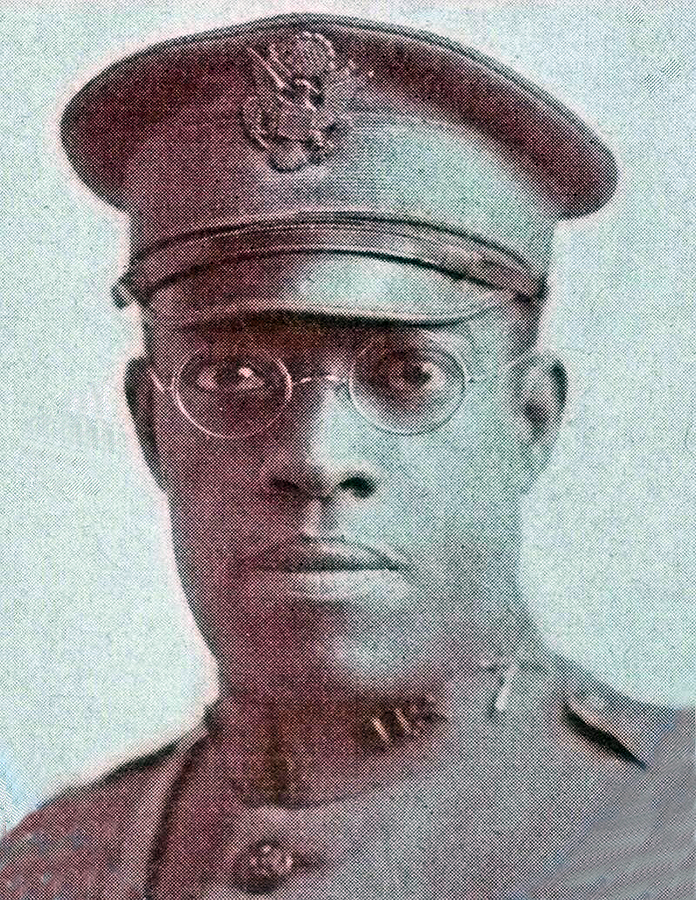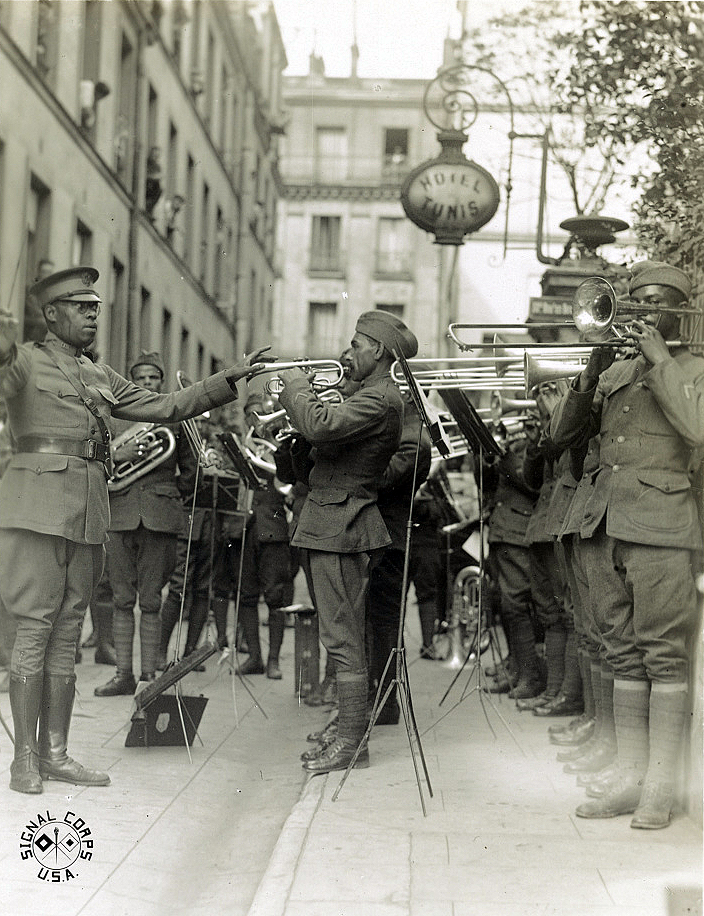
Chicago-based pianist-composer Reginald R. Robinson, a leading contemporary champion of ragtime, pays homage to one of the genre’s earliest originators with A Tribute to the Great James Reese Europe.
This work, commissioned by SCP Jazz to commemorate the series’ 25th anniversary, will receive its world premiere Nov. 2, when Robinson opens a double bill with the Branford Marsalis Quartet. A bandleader, composer and jazz/ragtime pioneer, James Reese Europe (1881-1919) shaped not only “the music of his own time, but also the sounds of future generation,” reports the U.S. Library of Congress. Europe’s accomplishments, which included the first-ever concert in 1912 at Carnegie Hall of works composed by black Americans, have dimmed over the last century, in part because of his tragic early death. “People need to know about this music,” said Robinson, 45, a former recipient of the prestigious MacArthur Fellowship, and regarded worldwide as one of the premier interpreters of ragtime.

Jazz/ragtime pioneer James Reese Europe is the subject of an SCP Jazz commissioned work by Reginald R. Robinson. | Photo: Wikimedia
In recognizing the composer whom ragtime great Eubie Blake once called “the Martin Luther King of music,” Robinson is being faithful to his long-running interest in introducing marginalized musical figures to modern audiences. “His talk is as interesting as what he plays,” said Robinson of Europe, who also invented the foxtrot dance style during his years (1912-16) of leading an orchestra for the famous dance team of Vernon and Irene Castle. All of Robinson’s performances make a strong effort to give audiences brief histories of the compositions and the composers behind the works. It’s part of his concern that the music’s history is not properly getting passed down to younger generations.
Robinson’s tribute to Europe is part of the Chicago Symphony Orchestra’s season-long commemoration of the Armistice that ended World War I in 1918. James Reese Europe played a crucial role in that war as a commissioned lieutenant and organizer of a military band for the U.S. Army’s 369th Regiment, known as the Hell Fighters. While overseas, Europe and his band traveled more than 2,000 miles as they introduced black American music, including jazz, to French and British audiences. Returning home as a hero in February 1919, Europe embarked on a national tour but was fatally wounded in a dispute with a band member. Thinking the injury was superficial, Europe told his band to proceed with that night’s concert. He died hours later on May 9.
Robinson’s suite consists of four sections: “Jazz Lieutenant” recognizes Europe’s history when he conducted a military band while wearing a uniform; “One Step Beyond” takes listeners to his dance band period; “Serenade in Twilight” is a waltz, reminiscent of when Europe’s big band played all over the world, and finally, “Afro-Brazilian Carnival” is a Brazilian tango, a style that Europe often wrote in and popularized.
Joining Robinson onstage at Symphony Center will be violinists Melanie Clevert-Sarapa and Anne Harris, saxophonist Edwin Daugherty, clarinetist Kaliq Woods, trombonist Norman Palm, trumpeter Bob Griffin, tubist Gerald Powell and percussionist Dushun Mosley.
Finishing the piece this year was difficult as Janet Robinson, his mother, died in June. (His father, Moses, died in 2009.) The last time Robinson saw his mother he played her the first section of the suite. “She heard it all the way through,” he said.
His parents, especially his mother, were crucial in his early development as a musician. As a pre-teen, his family lived in Austin, the Far West Side neighborhood. When Reginald was 13, a quintet visited his school and performed “Bach to Bebop,” a program designed to introduce schoolchildren to a spectrum of musical styles. Robinson’s ears perked up somewhere in the middle.

Lt. James Reese Europe (far left) and his military band play for wounded soldiers in the courtyard of a Paris hospital in 1918. | Photo: Library of Congress
On the day after his eighth-grade graduation, Robinson’s life changed. He had recently discovered the piano, and on that post-graduation day, he walked through the back door. Sitting in the living room was an upright spinet piano. His mother had bought it from a woman down the block. “A whole world opened up,” he said.
His mother had little choice but to scout a piano for her son. Robinson was in hot pursuit of learning everything he could about ragtime, a syncopated piano style from the turn of the last century. “I didn’t care about Bach and I didn’t care about bebop,” he recalled. “I cared about the ragtime!”
His parents could not afford music lessons, but Robinson was content teaching himself. He collected books and taped music off the radio. Three weeks at a music conservatory taught him how to sight-read. Once at his own piano, he started making recordings, and then three years after that fateful school assembly, he started writing his own songs. The title of his first composition: “The Scamp.”
The exposure led him to the public library, to his family’s Encyclopedia Britannica set, to the late Dick Buckley and his late-night jazz program on WBEZ-FM, to thrift stores, even to videocassettes of silent-film classics — anywhere where he could read about or just hear snippets of ragtime. Even the local ice cream truck was a revelation — the song the truck trailed throughout the neighborhood one summer happened to be “The Entertainer” by legendary ragtime composer Scott Joplin.
This was in the mid-1980s when most kids his age were being seduced by MTV. But Robinson had ears for nothing but ragtime. There was clarity in the emotions, and the emotions were complex. The right hand was happy, but the left counterbalanced sadness. The music’s duality lured him closer. “It was bittersweet,” he said. “I don’t know any other music that does that.”
Joplin in particular was an inspiration. Once he learned the music from books, he discovered actual Joplin recordings on Buckley’s show. “I thought it was a modern player,” he said when he heard the music over the radio. The piano was Joplin’s from 1916. “It blew me away. I had no idea he made recordings,” he said.
Adding to the aura was the title of the composition: “Weeping Willow.” Robinson just happened to write his own rag of the same name, in dedication to a weeping willow across the street from his house.
After helping to revive the music of Joplin and other ragtime composers, Robinson carries on his mission with his Tribute to the Great James Reese Europe. “Twenty years ago, it was harder, trying to explain to people what ragtime was,” he said in an interview last year with the Chicago Tribune. “Now people realize it’s not just music playing to silent movies. It was African-American people creating music that later was going to be called jazz.”
Chicago-based journalist Mark Guarino writes for the Guardian, Crain’s Chicago Business, the Washington Post, Salon, the Chicago Tribune, Reuters, Agence France-Press and other outlets.